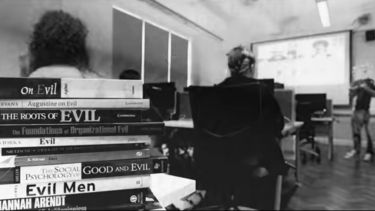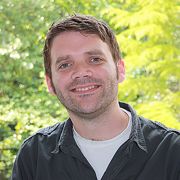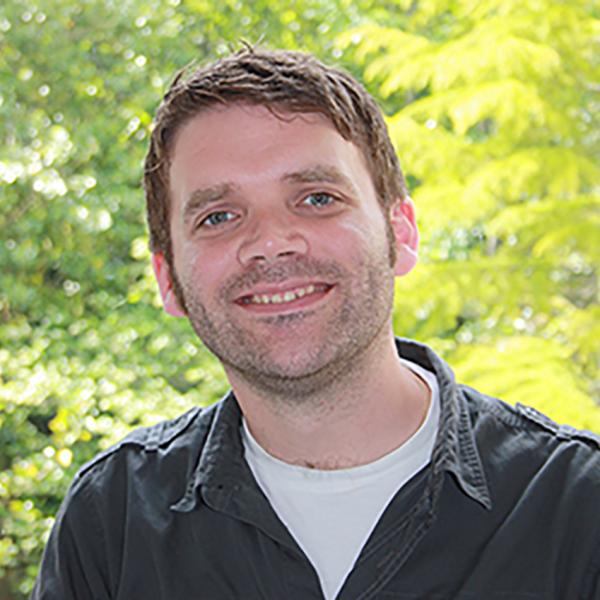A ‘sociology of evil’ gives students a fresh perspective on sociological theory
An academic at the University has developed work into understanding the nature and processes of evil, and what role it has in society; delivering students with an entirely fresh sociological topic.

Dr Tom Clark, a Lecturer in Research Methods, noticed that there was a lack of existing sociological research into the notion of evil and why it exists.
He found that most research in this area was from a psychological perspective and focused very much on the individual, but Tom was more interested in what role evil plays in society and why some things are labelled as ‘evil’ in the first place.
The outcome of this module for students is that they’re becoming critically informed sociologists, who can think about the world in a different way and not take the world for granted.
Dr Tom Clark
Lecturer in Research Methods
The purpose of evil
“There’s a popular saying: if we didn’t have evil we’d need to invent it,” Tom says, “What’s the point of it from a sociological perspective? What function does it have for a society? What’s its role? Why do certain things get labelled as evil, but others don’t? Because it’s not consistent.
“For instance, you think of serial killers as being evil but before Harold Shipman came along – in terms of the numbers of people killed – the most evil serial killer was a bloke called Peter Dinsdale and no one knows who he is.
"He never got on any of these ‘most evil killers’ TV programmes because he was an arsonist and he doesn’t fit into that mould of what we have for serial killers.”
While researching this idea, by looking through newspaper headlines from 2008 for the use of the word ‘evil’, Tom noticed that the National Archive were releasing Myra Hindley’s prison files, and this has helped both Tom’s research and the module he delivers to students.
He says: “I found loads of stuff that wasn’t in the public domain and wasn’t known, it was obvious that I had to do something with this. I mean, what do you do when you find Chapter One of Myra Hindley’s autobiography?”
Tom also found a mass of documents relating to other prolific violent-offenders, such as Harold Shipman, Fred West, and the Krays and he’s used this material as case studies to form the basis of his research about the processes of evil and its nature in society.
“Out of the back of that I’ve been writing a book about the sociology of evil and what that might mean and how it might work in practice, that’s where I am in terms of research at this minute and it’s kind of been an explanation of what this means in practice.
“We don’t need evil as a dependent variable that needs to be explained in the individual, we actually need to put it in societal context and ask: is this a good use of evil? And: what’s the underlying reasons we’re calling this evil in the first place?” Tom explains.
Applying current theory
This is where Tom can bring his students in to help him develop this research, by giving them the freedom to explore these questions themselves – in and out of the lecture hall. Students on Tom’s Sociology of Evil module use existing sociological theory and apply those theories to current examples of ‘evil’ using their own case studies to see how these things fit together.
Tom says: “They can use things that have been labelled in the media as ‘evil’, they can use ’10 most evil people’ books – anything that has this stigma of evil attached to it they can look at and explore whether these things work, because these things have never really been applied in an empirical context.
“The outcome of this module for students is that they’re becoming critically informed sociologists, who can think about the world in a different way and not take the world for granted; not take media representations for granted and begin to question the things that they’re delivered that they might not otherwise question.”


